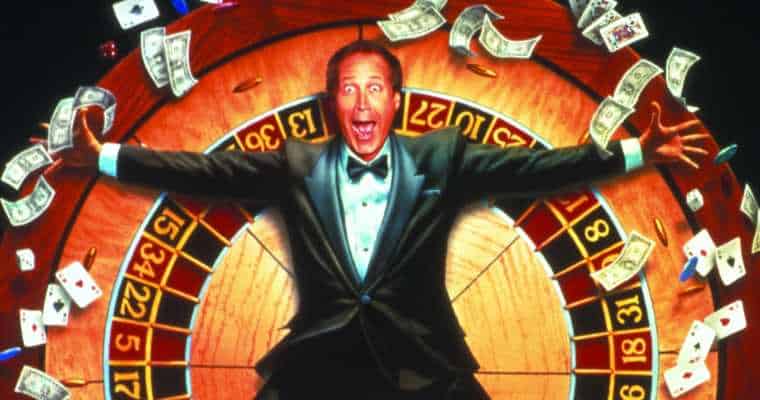In my line of work (i.e. opining obsessively about how to survive the apocalypse and then writing never-to-be-published short stories about such scenarios), I spend a lot of time thinking about which industries and businesses and pastimes are actually apocalypse-proof.
There are a few. Gambling is one of them.
There’s a casino in every Mad Max-style book, movie, and TV show for a reason.
But that doesn’t necessarily mean casinos are depression-proof (which they’re clearly not when you hit a big loss), or even – for that matter – recession-proof.
And since we’re now in a recession (whether or not the powers that be admit this reality – all you have to do is look at the stock markets, crypto markets, the gas pump, your groceries, etc.), we’re starting to see first-hand exactly how much perseverance the gambling industry actually has.
Of course, this isn’t a virgin run.
For the better part of 30 months now, casinos all over the world have been playing musical chairs with their revolving doors.
They’ve shuttered for months at a time, reopened at quarter capacities, locked down again, installed sneeze guards at roulette tables and slot machines to reopen once more at 50% capacity, closed for a week or two here and there, welcomed customers back at 75% capacity but with no buffet access, and so on.
Today, though, most casinos are finally chugging along at pre-COVID levels.
(At least, that’s true in the United States. The situation in Macau, the world’s largest casino district, tells a much different story.)
Nevertheless, indications are that US casinos are starting to feel the pinch. And if not in the pocketbook, then in the potential for it.
Indeed, the big hitters in the casino industry – which are based in Las Vegas and do most of their business across America rather than internationally – claim that they’ve not yet felt the pressures of the current economic downturn.
CNBC explains why:
“Despite soaring inflation, gaming revenue in May was up 7.9% compared to the same time last year, according to the American Gaming Association. And March, April and May represented the three best months in the industry’s history, with each surpassing a total revenue of $5 billion.”
Interestingly, much of the primary concern about the immediate future’s potential decline in gaming revenue comes from Frank Fertitta III, CEO of Red Rock Resorts.
Back in early May, Fertitta made the salient observation that “rising prices are only impacting people who spend the least.”
And that, on its face, seems logical. It’s also somewhat troubling, as most casino gamblers aren’t high rollers – they’re average Joes and Janes.
However, according to MGM Resorts CEO Bill Hornbuckle, this doesn’t actually appear to be the case.
Due to various COVID mitigation efforts undertaken over the last couple of years – including more technologically oriented gaming spaces, gaming “pods,” and other weird nonsense like that – millennials (i.e. the people, as a class, with the least disposable income of all) are gambling in comparative droves.
Hornbuckle claims that these accouterments have
“brought millennials to the table in a way they have not been before in this industry. We have more millennial business than we’ve ever had by 20%. I’m extremely optimistic about this space.”
Fair enough.
But maybe this, too, is a hidden sign of a looming recession. Millennials have car payments and mortgages and college loans to pay off, and one way to do that – for the desperate or borderline desperate – is to take your chances to the casino floor.
Now, we’re not saying this is the case, and we’re not suggesting that casinos prey on people facing impending economic hardship. We’re big believers that legitimate casinos are perfectly moral and offer a compelling entertainment product that people want and can enjoy responsibly.
But it might be a factor, and it might be a sign.
Ultimately, though, it might not matter.
Thanks to lessons learned since 2020, the gambling space should be in good shape.
Wynn Resorts CEO Craig Billings believes that the casino industry will be able to navigate any looming recession or depression more readily – and more profitably – than many other industries:
“I do think the industry here in Las Vegas is better prepared, because of Covid, to know the levers we need to pull to make it through whatever comes.”
Maybe so.
But remember: During the height of the COVID lockdowns in 2020, Nevada’s annual GGR was down over 95% from the year before. Another year even remotely close to those levels would be catastrophic for Sin City.
Also remember: Nevada doesn’t have legal online casino gambling. While the biggest Las Vegas casino brands do have facilities in other states that allow them to host iGaming services, places like New Jersey and Pennsylvania can only carry Vegas so far if the domestic market is relegated to the Internet.
And the next time around, that relegation might be the result of grocery and gas prices rather than a public health scare.

